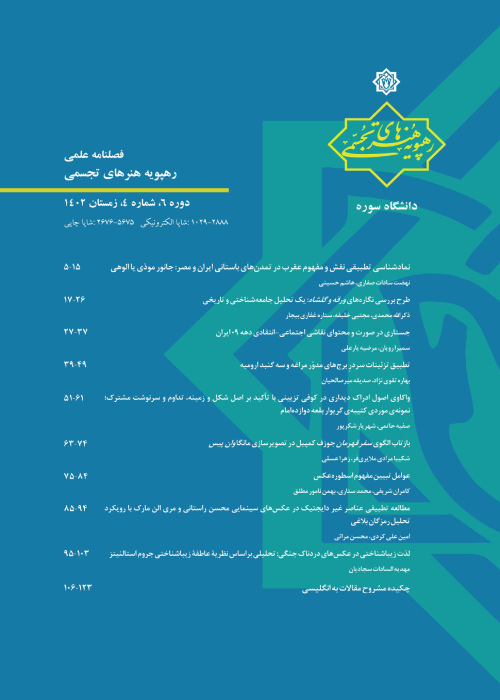Examining the role of design thinking between the mind and the complexity
The world is complex, and our tools have to adapt to that complexity, but things that seem very complex can seem very simple and things that seem simple can be very complex. We like products that are easy to use. But in addition to this feature, we expect it to be able to do what complex objects do. Therefore, the background of this research is from a design perspective and examines design thinking as a link between mind structures and complexity. The important issue here is the difference between complex and complicated. The word "complex" describes the state of the world, and the word "complicated" describes the state of mind. The challenge of design thinking is to mediate between complexity and the mind so that it is not complicated for the mind. A designer is faced with a complex situation; "Hence, the intricacies and movements of the designer, willingly or unwillingly, tend to results other than what was intended. Complexity is a quality or state that is complex and difficult to understand, do, or construct and has many interconnected parts or aspects. On the other hand, cognition is a practical and interactive activity. The whole cognitive system includes mind, action, and the world. Thinking and acting are in a physical environment. The designer's natural way of working involves that larger system by interacting with the temporary situational models he designs for it. The range of design thinking, including cognitive processes, strategic processes, and practical processes, enables the designer to "move toward the future of that particular use situation." These processes "make the world a part of cognition" and give the designer a set of "positioning strategies". Cognitive processes include attention and awareness, perception, memory and mental imagery, language, problem solving and creativity, decision making and Argument, intelligence. Strategic processes such as understanding everything, providing learning tools, grouping and organizing, meaningful communication, attractive conceptual model, signifiers, structure, modularization, automation, useful manipulation: forced operations, shaking and default, assistive devices Educational. And practical processes such as hand drawing, prototyping, scenario, model design, diagram, map, storyboard. These concepts make it clear that design thinking has certain positions and capabilities in the face of complexity.Accordingly, in this research, first by examining the research background on the concepts of complexity and mind from the perspective of science, management and then from the perspective of design, the basic concepts and structures related to complexity in four sections of simplicity, complicatedness, complexity and chaos are extracted.Then, the capabilities of design thinking in the face of these concepts and structures are examined.A comparison of the four concepts of complexity in design thinking with other sciences shows that solutions have been proposed in science and management to create simplicity, reduce complicatedness and deal with complexity. In the face of chaos, for example in the realm of management, it is that it accepts chaos or avoids it extensively.But design thinking has the ability to deal with confusion through abductive or productive reasoning.
Design thinking , simplicity , complicatedness , Complexity , chaos , Mind
- حق عضویت دریافتی صرف حمایت از نشریات عضو و نگهداری، تکمیل و توسعه مگیران میشود.
- پرداخت حق اشتراک و دانلود مقالات اجازه بازنشر آن در سایر رسانههای چاپی و دیجیتال را به کاربر نمیدهد.


